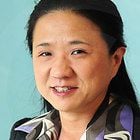How to generate more core and non-core ancillary revenues for your hotel?
8 experts shared their view
Maximizing revenues for your hotel in this age of lower occupancies and ADRs is the smart thing to do. Many hoteliers are struggling to create the internal processes and systems to successfully sell ancillary services.
To begin with, the revenue opportunities are gigantic from both core "hotel" ancillary products: room upgrades, early check-in, late check out fees, etc. and "non-hotel" ancillary revenue from selling insurance, tickets to museums, theme parks and theaters, concerts and sporting events, etc.
Hoteliers need to study and copy the airlines' mastery for generating ancillary revenues "out of thin air": in 2019 the airlines' ancillary revenue grew to $64.8 billion from $28.5 billion in 2014. Some airlines like Allegiant Airlines in Las Vegas, Nevada generate as high as 40% of their total revenue from auxiliaries.
I agree that hotels need to be more creative to generate more revenues. Therefore, I am adding a few alternative options to the list:
- Secured and high-speed internet options for a fee (e.g., a tier pricing strategy), tailoring to the work-from-home travelers.
- Resort or destination fees, which became more common even before the pandemic hit.
- Parking fees. In some cases, that may also give travelers a sense of security.
- On-demand grab-n-go breakfast/lunch, with two to three options/prices.
- On-demand in-room happy-hour packages, with either a set menu or a simple checklist menu.
- A coupon book for local businesses with a fee, similar to an AAA coupon book at shopping malls.
- On-demand in-room fridge and microwave.
- On-demand grocery items, with limited options on a checklist.
One of the key opportunities overlooked by many hotels is upselling/cross selling in their pre-arrival email. Firstly, a startling number of properties don't even take this opportunity to reach out to the guest a few days before check-in. And even fewer leverage such emails to propose interesting, personalized and relevant offers to these highly qualified prospects. Having 'forgotten' about the amount spend on their initial purchase, a few days before arrival guests are much more receptive to such offers , helping to drive ancillary revenue for the property and capture an increased share of the customer wallet.
When exploring ancillary revenue opportunities, hoteliers should keep in mind the following factors.
(1) How to make your persona's life better and easier? My favorite example is a room set up for parents traveling with a young baby. Parents travel with lots of baby gear (stroller, baby tub, bottles, bottle sterilizer, etc.). Hotels can monetize baby gear and make parents' lives better and easier. Another favorite example is the beach chair. Can hotels offer guaranteed seats and an umbrella? How do hoteliers manage these seats without annoying other guests?
(2) Avoid the pain of paying: The pain of paying refers to the negative emotion experienced when paying. Imagine when you go to a Japanese restaurant that demands you to pay before you put each sushi in your mouth instead of waiting until the end of the meal and charging you for the sum. No restaurant will operate in this way, as the pain of paying will kill the fun dining experience. The airline industry earns record ancillary revenues at the cost of creating the pain of paying. Although people indeed prefer paying for what they will or have consumed, they experience the pain of paying during the process (paying for the seat selection, luggage, etc.). The hotel industry needs to avoid annoying customers with the pain of paying when monetizing the ancillary services.
(3) The paradox of choice: Dr. Ivengar's famous jam experiment shows that people are more likely to purchase when they are not overwhelmed with too many options. A potential consequence of monetizing ancillary services is a long list of possible options. Currently, websites already overwhelmed customers with different room types and packages. Hoteliers need to make the selection and booking process simpler and easier. How to balance monetization and the simple booking process?
(4) Different buckets: When people book their hotel rooms, they have a budget in mind and want to stay within the budget. At this time, the goal is to book a room within the budget. Nevertheless, right before their trip, they start thinking about comfort and opening another bucket of money. Hence, selling an upgrade at the time of purchase may not work. It is better to e-mail guests right before their trips and offer upgrades or options.
This theme is re-occurring! Hoteliers have been late to adapt both operational and technological expertise to engage their guests through the world of 'add-ons.' Randomly test book any hotel and see what extras are available. Many great PMS allow for the integration of in-house activities: spa, golf, dining, but few do it well. Now how about those external activities: museum or gallery passes or even Hop-On-Hop-Off tours?
What is so beguiling is that when I book a rental car, I can add on a hotel room; when I book a flight, I can add on a hotel room or a car rental. Yet, when I book a hotel room I can neither add a car rental nor a flight. Just seems to me that hotels don't get it.
Will hotel ancillaries take off? Lessons from the airline industry
As hotels started opening their doors to international holidaymakers earlier this month - although all too briefly – hoteliers around the globe were reminded of the need to do whatever it takes to capture demand as it returns. While that remains the top is a focus, revenue managers could also learn how to boost their revenue from the very airlines that are starting to bring back the tourists.
The hospitality world is no stranger to ancillaries. Offering late check-outs, convenient parking and super fast broadband are all fairly standard. And, pre-Covid the use of packages to increase revenue was on the rise with deals combining extras such as spa treatments, afternoon tea, and on-site activities as well as bed and breakfast accounted for a third of all hotel bookings, according to Profit room.
Yet, is there more that hoteliers could be doing? Hotels often have a love-hate relationship with upselling. Because, over in the airline industry, upselling is a core part of even the most respected brands; they have mapped out the full customer journey, and take every opportunity to sell ancillaries – from paying to choose their seat, for hold luggage, booking flexibility, in-flight retail, as well as non-core ancillaries such as accommodation, car hire and entrance to tourist attractions. Travellers are given multiple opportunities to upgrade, whether booking online or from frontline staff, before traveling or at every step of the journey - through email reminders.
Research by Diggin and Switchfly found that airline ancillary leaders made their biggest gains post-booking, by following up with travellers to share offers and entice them to make additional purchases just before they set off. This is where hotels too have a huge opportunity. Research by Frost & Sullivan and Amadeus for the airline industry found that 76% of travellers were interested in context aware emails and 49% were interested in push notifications.
Drawing on their customer data to create packages and ancillary options that will appeal to their different segments and becoming better at keeping in touch with guests in between booking and check-in. Follow-up emails can offer anything from room upgrades to tickets to nearby attractions or packages that combine an enhanced hotel experience with non-core ancillaries.
Hotels, as with their airline counterparts, are not only having to do more with less but are also facing a fiercely competitive environment. By successfully increasing both core and non-core ancillary sales, hotels have an opportunity not only to boost revenue but with a careful pricing strategy could offset a lower room rate and gain a competitive advantage.
At the heart of all of this though is ensuring that hotels have a granular understanding of their guests to be able to tailor a compelling offering that will generate much needed additional revenue streams.
Amidst the pandemic, both core and non-core ancillary revenues have proved essential for hotels to stay afloat. Most notably, by identifying the shift in customer segments (from international to domestic), many hotels were able to capitalize on Day-use bookings and secondary services (i.e. SPA) to maximize their revenues. This rapid and widespread adoption of a relatively new approach to hotels' operations has been a testament to the resilience of our industry.
While this innovative concept is a great first step towards recovery, its technological execution has long remained shaky. Indeed, although you might get the idea right, properly implementing it throughout your digital channels can still be a challenge. At PrivateDeal, we are proud to have accompanied our hotels during this paradigm shift by introducing ancillary revenues as an integral part of the solution. Thus, our hotel partners were able to easily and quickly put their ancillary revenue strategy into place without the hassle of finding (or developing) a brand new system.
Generating ancillary revenues requires a) the implementation of merchandizing strategy and culture at the property/hotel company, b) incentivizing and training your staff, and c) adopting technology solutions to automate as many of the internal processes as possible.
- Core Hotel Ancillary Products:
These products are primarily around upselling, upgrading and cross-selling the property's core amenities: better rooms, suites, spa services, F&B (Interested in our Caribbean Buffet tonight?), early check-ins, late check-outs, etc. Implementing automated solutions like ROOMDEX and Oracle's Nor1 can dramatically increase ancillary revenues, reduce labor cost and enable your staff to focus on delivering exceptional guest services. Another benefit of using technology is that you can upsell during the booking process on your website or call center, via reservation confirmations, during the mobile check-in, and yes, at the front desk or via the self check-in kiosk.
Room self-selection also offers immense merchandising opportunities: Look for PMS or third-party applications that allow your guests to self-select their room during the mobile or self check-in process from a digital floor plan of your property. The new Oracle Hospitality Integration Hub already offers a similar partner application. Travel consumers are already accustomed to choosing online airline seats, movie theater seats, opera seats, etc., why not hotel rooms? This can be a great way to generate additional revenue: You want a room away from the elevator? It's $10 more. A room on a higher floor? $20 more. Upgrade to a suite for $50? I am convinced room selection will become the norm within the next few years. Enabling advance room selection and mobile keys is a great way for reducing the need for front desk clerks. Hilton recently introduced this room selection capability at all of its U.S. hotels.
- Non-Core Hotel Ancillary Products:
Here the sky is the limit! I see two great merchandizing opportunities:
- Sale of guest stay-enhancing ancillary products like champagne for special occasions, romantic stay decorations, chocolate covered strawberries, ice cream, bouquet of flowers, breakfast in bed, etc.
- Sale of city passes and tickets to local museums, theme parks, sporting events, concerts and performances, art exhibitions and other attractions, as well as sightseeing tours to places of interest. Better off, selling hotel packages including these local attractions and activities would not only “hide” the room price, but will allow the hotel to sell on value vs sell on rate alone.
How many hotels can boast that 15, 25% or 35% of their revenue comes from the sale of ancillary products like it is for a typical airline? A hotel has significantly greater ancillary revenue opportunities than the airlines, yet very few hotels take full advantage of these bottom line enhancing ancillary products. Example: In 2019, the last “normal” year before the pandemic, out of 700 hotels in New York City, only a half dozen offered Broadway theater packages. Why? Too much work and lack of merchandizing strategy.
The moral of the story? Hire employees who do not think that generating auxiliary revenue is too much work, and you take it from there.
Be present at all stages of the consumer buying journey – having a clear strategy for upselling beyond the initial room stay is crucial to success. It should be defined at each stage of the consumer buying journey from the guest's initial research phase, all the way through the booking process and continuing to arrival and during the guest stay.
Be data-driven - covid has increased the pace of digital transformation substantially and many hotels have accelerated programs that aim to digitize their hotel sales, marketing and operations. For an upselling strategy to be successful it must be relevant and well timed to each guest. The best route to that is to use first party data and technology to understand the guest, to know what up-selling messages work and when to deliver them. Technology also plays a crucial role with offers via email, text and in-app all playing a role in engaging with the guest at each stage.
Motivate & Empower the hotel team – Successful up-sell programs will need an engaged and motivated team to deliver properly. Empowering every member of the hotel team that interacts with guests as well as those responsible for delivering upsells at each stage of the consumer journey will lead to better results.
Marriott's Bonvoy app is a great example of that kind of focus to “hotel” and “non-hotel” ancillary revenue when you consider how they merchandise your room stay, local experiences like museums, and even Marriott bed-linens and scents all within the app experience.








